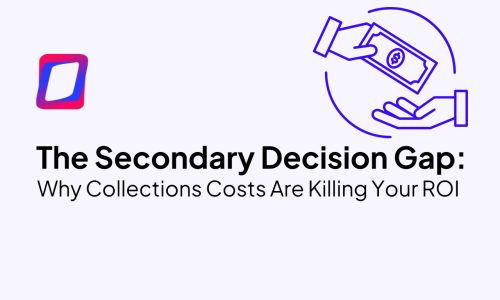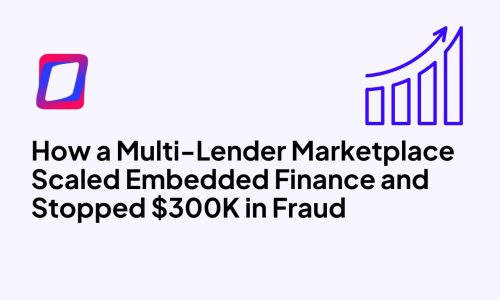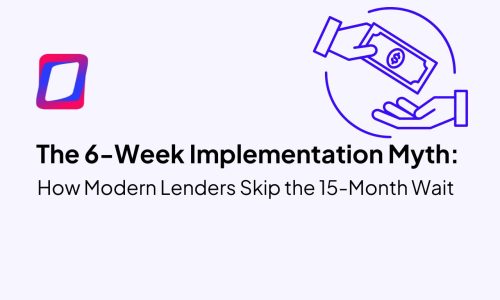Equifax and Best Egg Discuss the Evolution of Income Verification in Lending
Revolutionizing Lending: Equifax and Best Egg Explore the Future of Income Verification
In this episode of The Lending Link podcast, we are honored to have two esteemed guests, Shelly Nischbach, Senior Vice President of Verification Services at Equifax, and Douglas Mihalow, Senior Director at Best Egg. Our host, Rich Alterman, leads an engaging conversation that sheds light on the ever-changing lending landscape and the crucial role of income and employment verification.
Exploring Equifax’s Verification Services
During this captivating episode, we delve into Equifax’s Verification Services and its impressive evolution in product offerings. Shelly Nischbach, an experienced industry expert, shares her extensive knowledge and experience, providing insights into the background and growth of Equifax’s workforce solutions.
Adapting to Industry Needs
We begin by examining the original use case for income and employment verification and how Equifax has adapted its offerings to meet the dynamic needs of the lending industry. As one of the fastest-growing sectors, Equifax has expanded its database to serve a diverse range of industries.
Benefits of Digital Verifications
The episode delves into the benefits of digital verifications for consumers, highlighting Equifax’s transformative impact on the traditional manual verification process. Shelly Nischbach discusses digital verifications’ enhanced efficiency and speed, allowing consumers to receive results within minutes or even seconds. We explore the advantages that digital verifications bring to both consumers and lenders.
Addressing Compliance Considerations
Throughout the conversation, we address critical compliance considerations. Shelly Nischbach clarifies the FCRA compliance of income and employment data, ensuring that the verification process aligns with regulatory standards. Furthermore, she provides insights into how listeners can obtain a copy of their Work Number while offering a glimpse into the future of permissioning.
Practical Application and Analytics
Doug Mihalow, an expert in credit and fraud risk management, joins the discussion to share his insights on the practical application of income and employment verification in the lending industry. He provides valuable information on how lenders can leverage The Work Number to make informed credit offers and decisions based on verified income and employment data. The conversation also explores using analytics for income verification, discussing key data points and trends lenders should consider.
Advancements and Financial Inclusion
The conversation moves on to discuss exciting advancements in permission solutions for The Work Number. Our guests highlight continual improvements, such as routing applicants to agents for proper investigation and ensuring accuracy and efficiency in the verification process. They also emphasize the significance of optional widgets and opportunities to leverage income-type solutions. Furthermore, we delve into the importance of income verification for unbanked and underbanked Americans and its role in promoting financial inclusion.
The Future of Income and Employment Verification
In the concluding part of the episode, Shelly Nischbach and Doug Mihalow provide a forward-looking perspective on the future of income and employment verification. They discuss the importance of making verification more accessible and streamlined for a wider population.
Join us for this captivating episode of The Lending Link Podcast as we delve into income and employment verification intricacies with industry experts from Equifax and Best Egg. Gain invaluable insights into the evolving lending landscape, the benefits of digital verifications, compliance considerations, and the future of income and employment verification.
Show Notes
- eBook: Instant Income and Employment Data: Unlock New Possibilities with The Work Number: Unlock New Possibilities with The Work Number (equifax.com)
- The Work Number Webpage: theworknumber.com
- Best Egg Website: https://www.bestegg.com/
About Shelly Nischbach
Shelly is a sales leadership professional with a 30-year career in the banking industry. She has held positions with varying levels of responsibility supporting both staff and line level organizations including 6 years of strategic development and implementation in consumer and private wealth and 25 years of leadership/management experience in the consumer banking space.
As a sales leader for the verification services consumer finance team, Shelly is responsible for leading a national sales team in exceeding sales goals by developing deep client relationships built on trust, thought partnership and value creation using unique data, innovative analytics, technology and industry expertise.
Shelly is a recent addition to the Equifax Workforce Solutions family, starting in March 2019. She earned a bachelor’s degree in business administration from Maryville University with an emphasis in Management and Finance and achieved her MBA from Lindenwood University. Shelly proudly serves her community as a board member of Mercy South Hospital, is a board member of SSM Hospice and Home Health Foundation and acts as a volunteer for numerous charitable organizations serving those in need.
About Doug Mihalow
Doug Mihalow, an accomplished professional in the field of risk management and currently serves as the Senior Director of Credit & Fraud Risk Management at Best Egg, the leading financial confidence platform. Best Egg is dedicated to providing flexible solutions to help people with limited savings confidently navigate their everyday financial lives. In his role, Doug utilizes his extensive experience to oversee the management of verification and fraud strategies for the expanding suite of financial tools at Best Egg, which includes personal loans, credit cards, flexible rent options, and financial health solutions.
With a distinguished career at several leading financial institutions, Doug has amassed a wealth of experience in risk management. He has made significant contributions to organizations such as MBNA, First USA, Bank One, Chase, Juniper Bank, and BarclayCard US, where he held various pivotal roles in risk management, further enhancing his skillset.
One of Doug’s notable strengths lies in his exceptional ability to tackle abstract business problems and develop sustainable solutions that garner companywide buy-in. His strategic mindset and innovative thinking enable him to effectively address complex challenges, translating them into actionable plans. Through fostering collaboration and consensus among diverse teams and stakeholders, Doug ensures that his solutions are embraced and successfully implement.
In his current capacity, Doug plays a crucial role in fortifying Best Egg’s risk management practices, contributing to the company’s position at the forefront of the industry. His valuable insights and contributions help the company empower consumers, enabling them to achieve their financial goals with confidence.
Be sure to follow Shelly, Doug and our host Rich on LinkedIn, and for the latest GDS Link updates and news, follow us on Twitter and LinkedIn. You can subscribe to the Lending Link on Apple Podcasts, Spotify, Google Play, YouTube, or wherever you prefer to listen to your podcasts!
Recent articles

The Secondary Decision Gap: Why Collections Costs Are Killing Your ROI
Read article
How a Multi-Lender Marketplace Scaled Embedded Finance and Stopped $300K in Fraud
Read article





